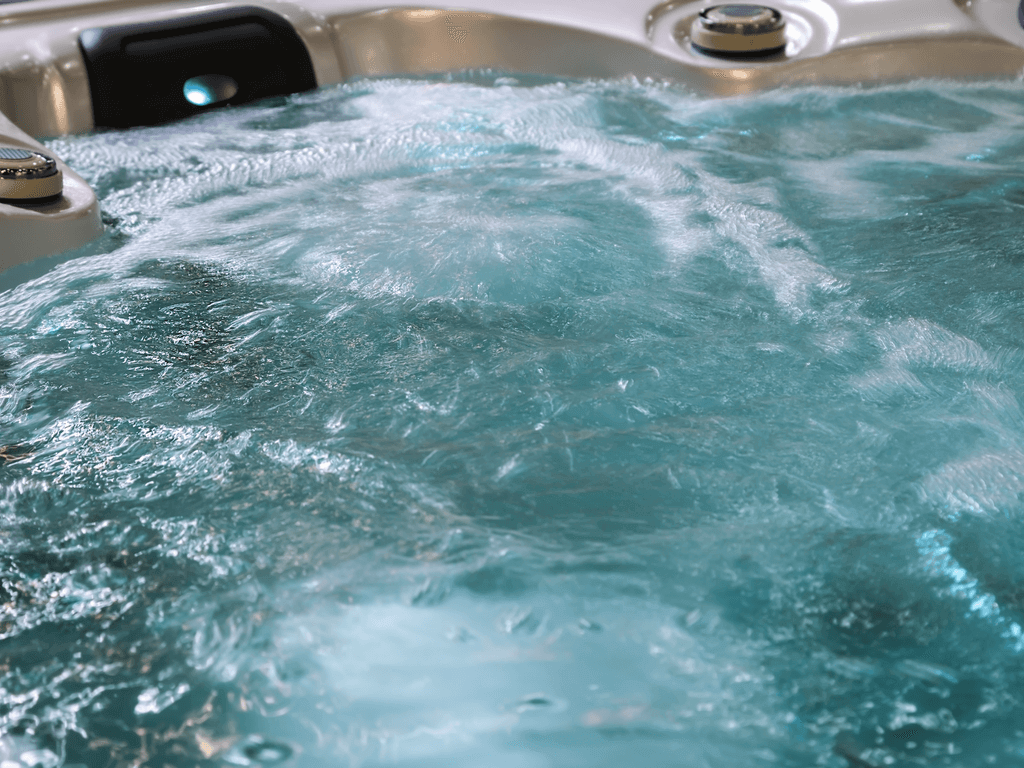Can Spas Use Saltwater?

We’ve all heard of saltwater pools, but are there saltwater spas? First, let’s clarify that this is different than the saltwater that you find at the beach. It simply refers to how the pool operates as the kind of water that goes into your pool or spa is based on its cleaning system. Choosing between chlorine and saltwater is about how you want to clean your water.
Saltwater pools utilize a mild chlorination system that uses special pool salt that mixes with salt cells in the water, which produces chlorine. This is a safer and cleaner option than the typical chlorine system that doesn’t leave chemical residue in the water the same way a pure chlorine system does. Saltwater spas also produce softer water that’s more enjoyable to swim and bathe in.
If saltwater systems can make a pool more enjoyable and decrease the odds of a chlorine rash or eye burning, why not put it in spas? You can, but it’s not as common for good reason.
Are Saltwater Spas Better Than Chlorine Ones?
It probably seems simple at first glance. Saltwater is better than chlorine for these reasons, so shouldn’t it be better for a spa? It’s not that simple, because pools and spas are mechanically different, with different functions and materials.
There are reasons besides the bigger upfront cost to explain why saltwater spas are not necessarily the better choice. You should consider and weigh the pros and cons before making your decision.
Saltwater Breaks Down Spa Components
Spas have many more moving parts than pools do, despite holding less water. With all the different mechanical parts, not everything, or even most of the spa, can be made of fiberglass. Where a fiberglass pool has far fewer moving parts and is virtually indestructible against erosion, spas are not.
Saltwater spas don’t have the same salt concentration as ocean water, but salt is still salt. It will break down and damage the spa itself over time. The parts that are most deceptible are the heaters, pump seals, jet bearings, and stainless steel fittings. The spa’s main use will constantly flood these parts of the spa with salt that will break them down.
Salt Doesn’t All Go Away
This will lead to your spa needing repairs in just a few years after constant use. This issue is exasperated by how salt builds up and sits in your spa, eroding everything slowly. Due to the process, salt residue always forms and builds up in the spa. If you don’t clean it out, it will only worsen your salt erosion problem.
Saltwater Requires Just As Much Maintenance
Because of the salt build-up, you still need to clean out the spa and surrounding areas to make sure it’s free of salt. The parts that won’t need as much cleaning in a saltwater pool, like the chemical balance and rinse filters, will need to be cleaned just as often, or close to.
Consider Your Options When Filling Your Spa
Saltwater still feels better than chlorine water, whether it’s in a pool or a spa, but if you’re looking for something that’s easier or will help your spa last longer, it’s not the perfect alternative. Consider what you value more in a spa, and then decide what you want to fill your spa with.
If you need help figuring out which spa will fit your needs best, come to the showrooms at any of our three locations, and our experts will be happy to help. Contact us online for more information.
Posted by Aqua Leisure Pools & Spas in Pools

